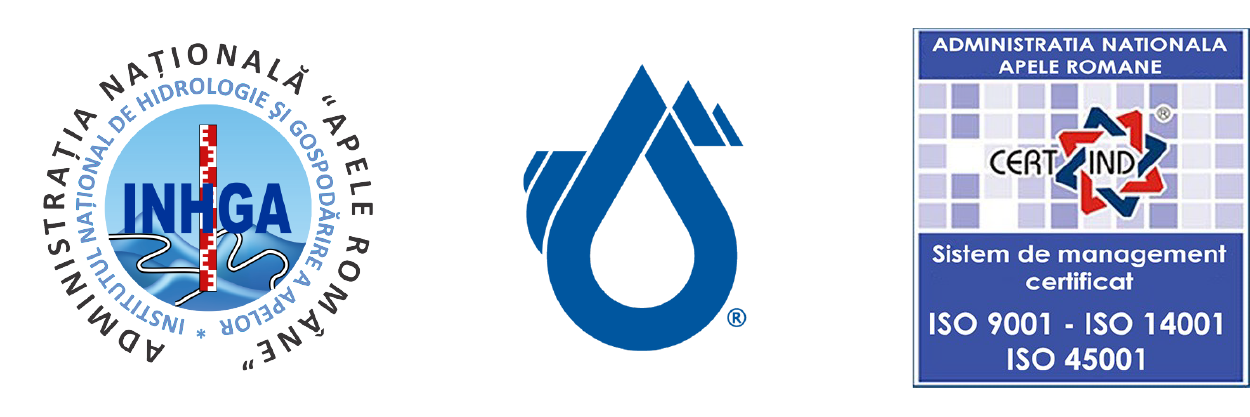| DanubeSediment_Q2 – O acțiune inovatoare în Bazinul Fluviului Dunărea privind managementul sedimentelor
Începând cu 1 ianuarie 2024, instituția noastră participă, în calitate de partener, la implementarea proiectului DanubeSediment_Q2 de către un consorțiu format din 15 parteneri proveniți din 11 state europene, pentru o perioadă de 2.5 ani. Finanțat prin Programul pentru Regiunea Dunării 2021-2027, cu un buget total de 2.893.187,47 euro, din care 148.600 euro sunt alocați activităților I.N.H.G.A., proiectul își propune să ajute la îmbunătățirea managementului cantitativ și calitativ al sedimentelor din Dunăre, astfel încât să permită atingerea cât mai rapidă a obiectivelor de mediu prevăzute de Directivele Europene. Transportul sedimentelor pe Dunăre și managementul acestora reprezintă o problemă de importanță deosebită, care poate fi tratată numai printr-o abordare transnațională, având în vedere că sedimentele nu cunosc granițe administrative sau politice. Obiectivul principal al proiectului este îmbunătățirea managementului cantității și calității sedimentelor în Bazinul Fluviului Dunărea, cu scopul de a susține atingerea unei stări ecologice bune, prin dezvoltarea unor măsuri pilot și a unui Plan de Management Integrat al Sedimentelor pentru întregul bazin. Realizarea acestui obiectiv va permite, în timp, atingerea unui regim echilibrat al sedimentelor și asigurarea continuității acestora, contribuind, în acest fel, la protejarea bazinului împotriva consecințelor schimbărilor climatice. De asemenea, proiectul va oferi soluții pentru problemele comune identificate de-a lungul Dunării de țările riverane privind modificarea transportului de sedimente, prin dezvoltarea unei noi abordări integrate de gestionare a acestora, dezvoltând cinci componente inovatoare: • Monitorizarea combinată a calității și cantității sedimentelor; • Dezvoltarea si utilizarea unei noi metode de evaluare hidromorfologică; • Dezvoltarea si utilizarea unei noi metode de evaluare a riscurilor; • Propunerea de măsuri practice de gestionare a sedimentelor, testate prin studii de caz; • Realizarea Planului de management integrat al sedimentelor. –––––––––––––––––––––- Proiectul DanubeSediment_Q2 este susținut de Programul Interreg Danube Region și co-finanțat de Uniunea Europeană. |
DanubeSediment_Q2 – An innovative action in the Danube River Basin regarding sediment management
Starting from the 1st of January, 2024, our institution participates, as partner, in the implementation of the DanubeSediment_Q2 project, by a consortium of 15 partners from 11 European states, for a period of 2.5 years. Financed through the Programme for the Danube Region 2021-2027, with a total budget of 2,893,187.47 euros, of which 148,600 euros are allocated to N.I.H.W.M. activities, the project aims to improve the quantitative and qualitative management of sediments in the Danube, in order to allow the fastest achievement of the environmental objectives provided by the European Directives. The transport of sediments on the Danube and their management is a problem of particular importance, which can only be dealt through a transnational approach, considering that sediments do not take into account administrative or political borders. The main objective of the project is to improve the management of the sediments’ quantity and quality in the Danube River Basin, with the aim of supporting the achievement of a good ecological status, through the development of pilot measures and a Sediment Integrated Management Plan for the entire basin. Achieving this objective will allow, over time, to reach a balanced sediment regime, and ensure their continuity, thus contributing to protecting the basin against the consequences of climate change. Also, the project will provide solutions for the common problems identified along the Danube by the riparian countries regarding the alteration of sediment transport, by developing a new integrated approach of their management, developing five innovative components: • Combined monitoring of sediment quality and quantity; •Development and use of a new hydromorphological assessment method; • Development and use of a new risk assessment method; • Proposal of practical measures for sediment management, tested through case studies; • Elaboration of the Sediments Integrated Management Plan. –––––––––––––––––––––- The DanubeSediment_Q2 project is supported by the Interreg Danube Region Programme and co-financed by the European Union.
|
